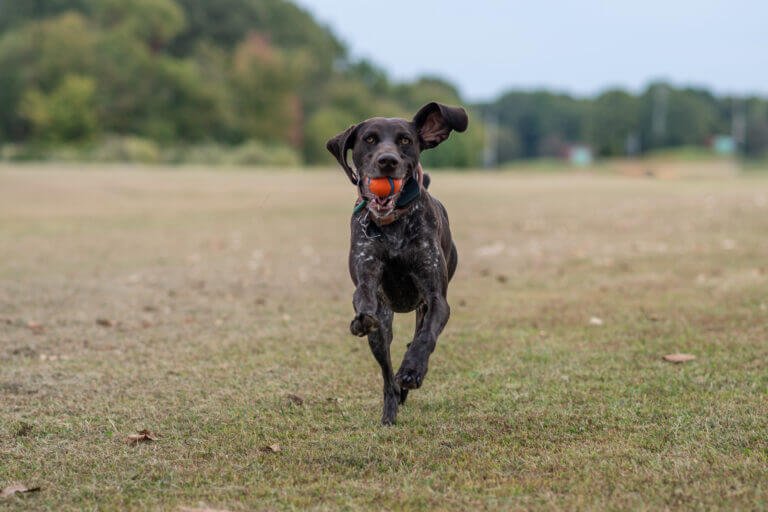Have you ever wondered if it’s normal for your furry friend to snore? Rest assured, you’re not alone in this curiosity. Many pet owners have noticed their pets producing snores that rival even the loudest humans. But before you rush to Google for answers, let’s explore the intriguing world of pet snoring and discover whether it’s just another peculiar quirk or something worth giving a second thought.

Causes of Snoring
Obesity
One of the common causes of snoring in pets, particularly in dogs, is obesity. When your pet is overweight, the excess fat in their neck and throat area can constrict their airways, leading to snoring. The extra weight puts pressure on the airways, making it difficult for your furry friend to breathe properly during sleep.
Ready for Cat Trivia?
Test your knowledge about cats!

Breed Predisposition
Certain breeds of dogs and cats are more prone to snoring due to their genetic makeup. Breeds with short snouts, such as Bulldogs and Pugs, often have narrower airways, making it easier for them to snore. These breeds are known as brachycephalic breeds and their unique facial structure can contribute to the snoring sound.
Anatomy
The anatomy of your pet’s respiratory system can also play a role in snoring. Just like in humans, if your pet has a deviated septum or an elongated soft palate, it can obstruct the airflow and cause snoring. These anatomical issues can be present from birth or develop over time and may require medical intervention.
Allergies
Similar to humans, pets can suffer from allergies that can cause nasal congestion and inflammation. Allergens like pollen, dust mites, or certain foods can trigger allergic reactions in your pet, leading to snoring. If you notice that your pet’s snoring worsens during specific seasons or after exposure to certain substances, allergies may be the cause.
Respiratory Infections
Respiratory infections, such as bronchitis or sinusitis, can also result in snoring. These infections cause inflammation and congestion in the respiratory tract, making it difficult for your pet to breathe freely. If your pet’s snoring is accompanied by other symptoms like coughing, sneezing, or nasal discharge, a respiratory infection might be the underlying cause.
When to Be Concerned
Loud or Disruptive Snoring
While some degree of snoring can be normal, loud or disruptive snoring may indicate an underlying issue. If your pet’s snoring is so loud that it disrupts your sleep or can be heard from another room, it’s worth considering a visit to the veterinarian.
Gasping or Choking Sounds
If your pet makes gasping or choking sounds during sleep, it could be a sign of a more serious problem. These sounds usually indicate partial or complete obstruction in the airway, and immediate veterinary attention is necessary to ensure your pet’s safety.
Interrupted Breathing
Snoring that is accompanied by pauses in breathing or apparent difficulty while breathing should not be ignored. These signs may suggest sleep apnea or another respiratory disorder that requires prompt medical evaluation.
Excessive Sleepiness
If your pet snores excessively throughout the night but also displays excessive sleepiness during the day, it is essential to consult a veterinarian. Excessive sleepiness could be a sign of an underlying health issue, and further investigation is needed to determine the cause.
Decreased Energy or Appetite
Persistent snoring accompanied by decreased energy levels or a loss of appetite should be taken seriously. These symptoms can indicate an underlying health problem and prompt veterinary intervention is crucial to identify and address the issue.
Tips to Reduce Snoring
Weight Management
If your pet is overweight, helping them achieve a healthy weight can alleviate snoring. A balanced diet and regular exercise can prevent obesity and reduce the excess fatty tissue around their airways, improving their breathing during sleep.
Elevated Sleeping Position
Elevating your pet’s sleeping position, such as by using a comfortable pet bed that keeps their head slightly elevated, can help reduce snoring. This position can help keep the airways open and ease breathing.
Allergen Control
If your pet’s snoring is triggered by allergies, minimizing their exposure to allergens can be helpful. Keep their living space clean and free of dust, regularly wash their bedding, and consider using air purifiers to reduce airborne allergens like pollen or pet dander.
Hydration
Ensuring your pet stays hydrated can help prevent nasal congestion and reduce snoring. Provide fresh, clean water at all times and monitor their water intake to ensure they are drinking enough.
Regular Exercise
Regular physical activity can help keep your pet’s respiratory system healthy. Exercise helps maintain a healthy weight, strengthens their muscles, and promotes overall wellbeing. Daily walks or playtime can make a significant difference in reducing snoring.
When to Consult a Veterinarian
Snoring from Birth
If your pet has been snoring since birth or early in their life, it is important to seek veterinary advice. Snoring that persists from an early age may indicate an underlying congenital issue that requires proper diagnosis and management.
Sudden Onset of Snoring
If your pet suddenly starts snoring or their snoring becomes more frequent and severe, it could be a sign of an underlying health problem. It is advisable to consult a veterinarian to rule out any underlying issues and determine the appropriate course of action.
Snoring Accompanied by Other Symptoms
If your pet’s snoring is accompanied by other concerning symptoms, such as coughing, wheezing, sneezing, nasal discharge, or difficulty breathing, a veterinarian should be consulted. These additional symptoms may help determine the underlying cause of the snoring and guide the appropriate treatment.
Concern for Breathing Difficulties
If you suspect that your pet is experiencing breathing difficulties or is struggling to breathe while awake or asleep, it is crucial to seek immediate veterinary attention. Breathing difficulties can be life-threatening, and prompt intervention is necessary to ensure your pet’s well-being.

Home Remedies for Snoring
Nasal Dilators
Nasal dilators, often in the form of strips or cones, can help open up your pet’s nasal passages and improve airflow. These devices are designed to reduce snoring caused by nasal congestion and are available for both dogs and cats.
Steam Inhalation
Just like humans, pets can benefit from steam inhalation for temporary relief from nasal congestion. Create a steamy environment in your bathroom by running a hot shower and let your pet spend a few minutes in the steam to help clear their airways.
Humidifiers
Using a humidifier or vaporizer in your pet’s sleeping area can add moisture to the air, reducing nasal dryness and congestion. This can make breathing easier for your pet during sleep and potentially alleviate snoring.
Allergy-Free Bedding
Investing in hypoallergenic bedding for your pet can help minimize their exposure to allergens that may contribute to snoring. Look for materials that are resistant to dust mites and other common allergens to create a more comfortable sleeping environment.
No Smoking Environment
Exposure to secondhand smoke can worsen snoring and contribute to respiratory problems in pets. It is essential to keep your home a smoke-free environment to promote optimal respiratory health for your furry friend.
Common Myths about Pet Snoring
Snoring Means Deep Sleep
Contrary to popular belief, snoring does not necessarily indicate deep sleep in pets. While some pets may snore when they are in a deep sleep, snoring can also be a sign of underlying health issues or obstructed airways. It is important to monitor your pet’s overall well-being and consult a veterinarian if you have any concerns.
Only Overweight Pets Snore
Although obesity is a common cause of snoring in pets, it is not the only factor. Pets of all sizes and breeds can snore due to various reasons such as breed predisposition, anatomy, allergies, or respiratory infections. Weight management is beneficial, but it is essential to consider other potential causes if your pet snores.
Snoring is Normal for Certain Breeds
While certain breeds are more prone to snoring due to their anatomy, it is not considered “normal.” Snoring may still indicate compromised breathing and should be evaluated by a veterinarian, especially if it is loud, disruptive, or accompanied by other concerning symptoms.

Conclusion
Snoring in pets can be caused by various factors, including obesity, breed predisposition, anatomy, allergies, and respiratory infections. While some snoring can be normal, it is important to pay attention to the severity and accompanying symptoms. By implementing strategies such as weight management, creating an elevated sleeping position, controlling allergens, ensuring hydration, and regular exercise, you can help reduce snoring in your pet. However, if snoring persists, is sudden, or is accompanied by other symptoms, it is advisable to consult a veterinarian for a proper diagnosis and appropriate treatment. Remember, a healthy and comfortable pet leads to a good night’s sleep for both of you.


